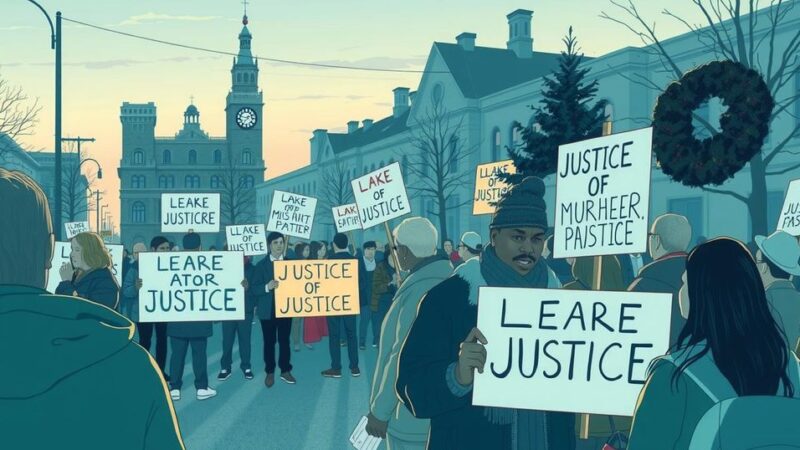Juanita Goebertus, Director at Human Rights Watch, details the alarming prison conditions in El Salvador, particularly at CECOT, revealing human rights violations including torture, overcrowding, and a lack of healthcare. The report discusses the impact of the state of emergency and the treatment of child detainees, emphasizing the need for international scrutiny.
Juanita Goebertus, the Director of the Americas Division at Human Rights Watch, submits a declaration regarding the severe prison conditions in El Salvador for the J.G.G. v. Trump case. She has been with Human Rights Watch since 2022, with expertise in law and political science from the Universidad de los Andes and an LLM from Harvard. Her declaration is based on her extensive experience and knowledge gained through several visits to El Salvador.
The Centro de Confinamiento del Terrorismo (CECOT) in Tecoluca has received individuals deported under the Alien Enemies Act, initially designed for 20,000 detainees, but with a later announcement of an expanded capacity of 40,000. Human Rights Watch’s presentation to the UN Human Rights Committee in July 2024 raised concerns regarding the impracticalities of providing adequate individualized treatment within such a large population, which could violate international standards for prisoner treatment.
Detainees at CECOT and other prisons are largely isolated from communication, appearing in court only through online hearings, frequently alongside hundreds of others. The government labels detainees as “terrorists,” asserting that they “will never leave,” with no known cases of release from CECOT. Human Rights Watch has been denied access to these prisons, while controlled visits for journalists have shown alarming conditions, including confinement with limited access to light and exercise.
Despite CECOT’s modern infrastructure, mistreatment reports are comparable to those found in other Salvadoran prisons, such as Izalco and La Esperanza. Documented abuses include torture, ill-treatment, denial of due process rights, and inadequate access to essential healthcare and food, which persist amid a three-year state of emergency that has curtailed constitutional rights.
Since the emergency began in March 2022, security forces claim to have detained 85,000 individuals, equating to about 1.4% of the country’s population. Human Rights Watch estimates that over 109,000 individuals are currently incarcerated in prisons designed for only 70,000, leading to serious overcrowding and conditions that have resulted in more than 350 deaths during this period, as reported by local human rights organizations.
Human Rights Watch’s report from July 2024 on child detainees revealed that over 3,300 children have been arrested, many of whom are not linked to gang activities. Documented abuses during these detentions include cases of torture and severe neglect, prompting new laws that further jeopardize juvenile detainees by placing them in adult prison systems.
In various interviews, former detainees detailed extreme mistreatment, overcrowding, and unsanitary conditions. One construction worker recounted violence against newcomers, while another described brutal interrogation methods and life-threatening conditions in police lock-ups. A further account highlighted punishment cells without adequate provisions for basic needs.
Human Rights Watch and Cristosal documented numerous cases involving individuals with pre-existing health issues who suffered due to the appalling conditions in these facilities. Corroborating evidence indicates that many detainees died under suspicious circumstances, some of whom were hastily buried in mass graves without family knowledge, resembling enforced disappearances.
An earlier report, “Deported to Danger,” highlighted the experiences of Salvadorans deported from the United States, revealing systemic abuses and violence faced by these individuals upon return. Accounts of severe physical abuses during detention exemplify the perilous conditions in Salvadoran prisons, underscoring the extensive violations of human rights ongoing in the country.
The declaration by Juanita Goebertus highlights the grave human rights violations occurring within the prisons of El Salvador, particularly concerning the treatment of detainees in facilities such as CECOT. The extensive evidence of overcrowding, lack of proper medical care, and abuse, especially against children, illustrates a systemic failure to uphold human rights. These issues are exacerbated by the ongoing state of emergency, which has led to the excessive arrest and mistreatment of thousands of individuals, demanding urgent international attention and intervention.
Original Source: www.hrw.org






